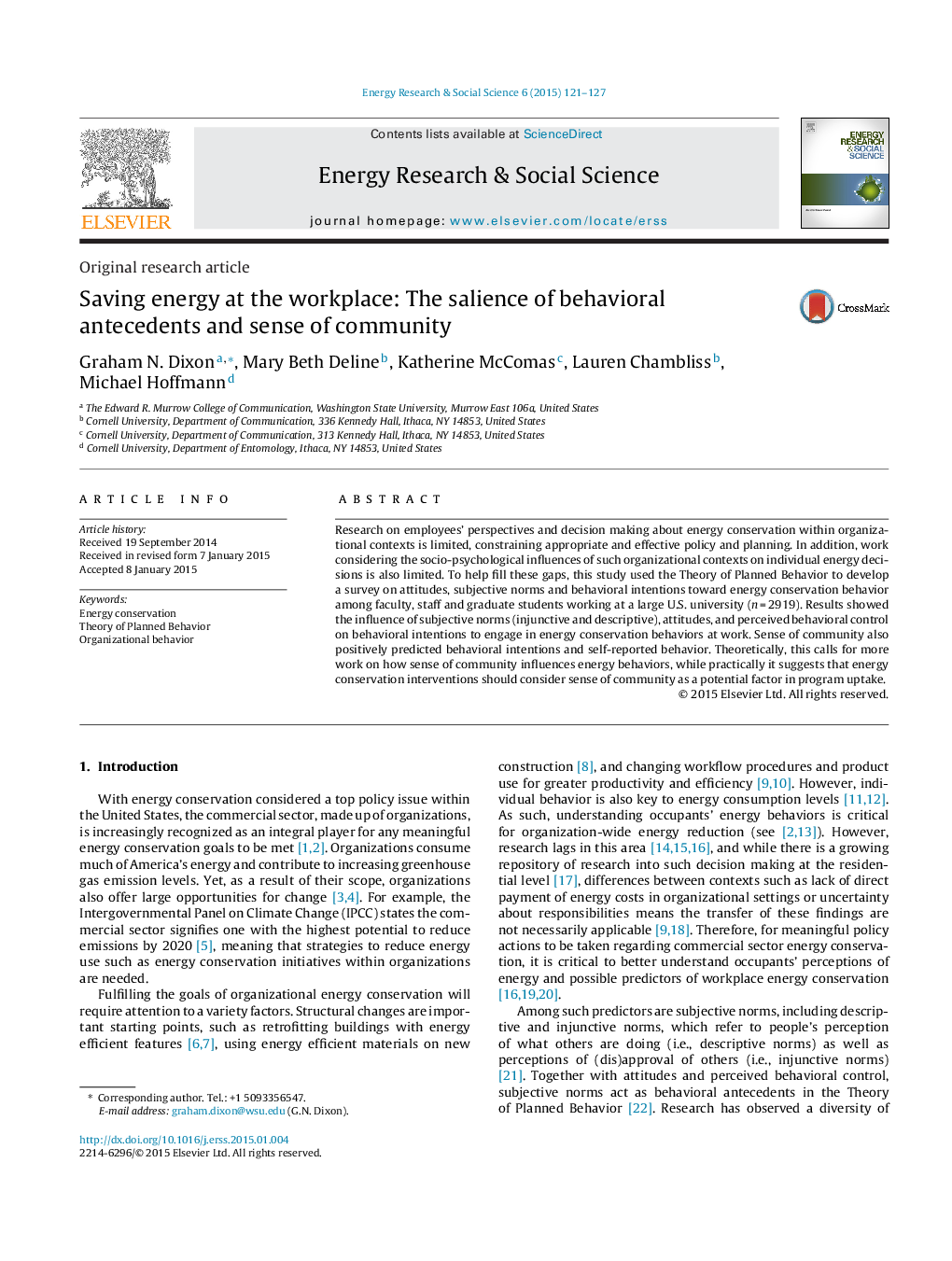| Article ID | Journal | Published Year | Pages | File Type |
|---|---|---|---|---|
| 6558904 | Energy Research & Social Science | 2015 | 7 Pages |
Abstract
Research on employees' perspectives and decision making about energy conservation within organizational contexts is limited, constraining appropriate and effective policy and planning. In addition, work considering the socio-psychological influences of such organizational contexts on individual energy decisions is also limited. To help fill these gaps, this study used the Theory of Planned Behavior to develop a survey on attitudes, subjective norms and behavioral intentions toward energy conservation behavior among faculty, staff and graduate students working at a large U.S. university (n = 2919). Results showed the influence of subjective norms (injunctive and descriptive), attitudes, and perceived behavioral control on behavioral intentions to engage in energy conservation behaviors at work. Sense of community also positively predicted behavioral intentions and self-reported behavior. Theoretically, this calls for more work on how sense of community influences energy behaviors, while practically it suggests that energy conservation interventions should consider sense of community as a potential factor in program uptake.
Related Topics
Physical Sciences and Engineering
Energy
Energy (General)
Authors
Graham N. Dixon, Mary Beth Deline, Katherine McComas, Lauren Chambliss, Michael Hoffmann,
